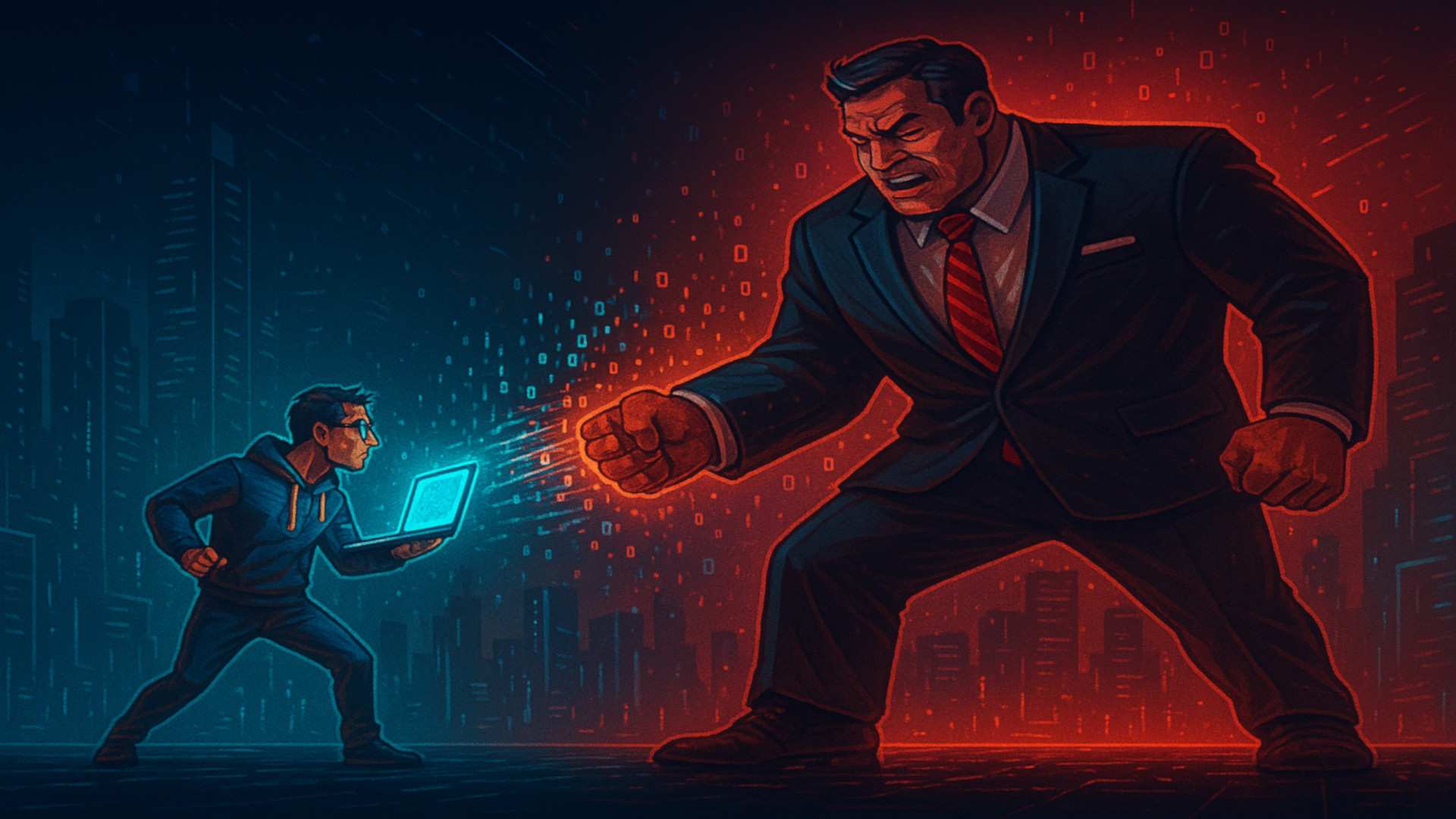Men Created Companies, Software Made Them Equal

Source: generated by ChatGPT on August 23, 2025.
Software has democratized access to resources, creating a more level playing field between large and small companies. Today, digital tools (cloud, automation, digital marketing) make resources accessible that previously only large companies had. Startups can scale globally without the need for factories or massive structures.
There was a time when programmable calculators were the big technological novelty. Newsstand technology magazines featured short programs that could be typed into these calculators. The HP-12C financial calculator was a bestseller, and Hewlett Packard and Texas Instruments enjoyed a nearly unbeatable dominance. Small companies that also sold calculators were virtually unable to compete with these large corporations. But then came smartphones.
Today, the HP-12C calculator is software, an app sold in the App Store and Google Play Store. And it's not a best-selling app, as other apps are at the top of the rankings. Some of these apps were created by independent developers, small startups just a few years old. They didn't even exist when HP and Texas Instruments dominated the market. This scenario, thanks to software, was unimaginable until the last century. Several other markets are feeling the same impact of software.
The 20th century was dominated by Hollywood, and films made by major studios always attracted more attention. Today, thanks to streaming platforms, films with million-dollar budgets compete in the entertainment market with small, independent productions. In the catalog of Netflix, the largest of the platforms, blockbusters from major studios sit alongside films and shorts produced byindie film-makersSome are created in underdeveloped countries with low-quality equipment, sometimes with a cell phone camera. They are typically edited on personal computers with open-source software, but subscribing to an editing platform like Adobe Premiere Pro is now much more affordable.
YouTube currently has more household viewership than any TV channel that's been on the air for decades. Some influencers on this platform earn more in a year, recording at home with their cell phones, than programs broadcast on major networks. TV also faces competition from other social networks, notably Instagram and TikTok. Thousands of small businesses use these networks as their primary communication channel with their customers. This is the reality in many countries, rich and poor alike: a significant portion of the economy is consolidated on software platforms.
I'm quite optimistic about the evolution of humanity, and I don't share the common notion in science fiction films that large corporations will wield immense power in the future, far greater than governments. Every year, technology increases the power of entrepreneurs and startups around the world. And now, with artificial intelligence, small businesses will be able to explore new markets and become even more competitive against large corporations.
This idea I advocate isn't short- or medium-term, it's long-term. A point in the future where Google Search may no longer exist, and Facebook, Instagram, and TikTok are just a memory, just as Myspace, Orkut, and Google+ are today. After all, the internet is a software graveyard. Google's list of completed projects inspired the creation of the website.www.killedbygoogle.com, "killed by Google" in free translation, which displays products discontinued by the search giant. As of this writing, the site listed 297 "dead" projects, divided into three categories: apps, services, and hardware.
Google and Meta are among the big tech companies of the third millennium, but they're consolidated on software. When better software becomes available, their hegemony will end. And software is democratic; it doesn't require government licensing (like TV and radio), large land plots (like shopping malls), or million-dollar investments. It doesn't require a specialist or a PhD; you just need to know how to program. Google has already begun to feel this firsthand; its web search market share has begun to shift, losing market share to ChatGPT and other AIs.
Many merchants use Instagram and TikTok. This, for me, is the first step—the fact that you only need one piece of software to start a business. Once society is consolidated around this concept, any good software will do, whether it's Mastodon or Nostr. Instagram and TikTok today will be Outlook and Gmail tomorrow. It doesn't matter where you create an email account; just being able to send emails is enough. If you want better email or greater privacy, an accessible platform like Proton can perfectly serve the purpose.
The companies that sold encyclopedias until the last century were giants. Wikipedia is a software program that democratized encyclopedias. And there are several others on the web, like Investopedia. But no one person dominates, because it's democratic. You can create an encyclopedia, and it might be useful to someone, but that doesn't mean you'll dominate the market.
Imagine the effort and investment required to create a bank a few decades ago. It was monumental. Today, a bank is a financial software platform, a Fintech. Have you ever stopped to consider how many banks there are in Brazil today? Until 2000, there were around 200 banks in Brazil. Today, that number exceeds 2,000. The credit card market, then, is quite fragmented. It's only a matter of time before MasterCard and Visa have more significant competitors, because it's software. No dedicated cabling or dial-up is required; just the internet.
What I believe is that in the future, there will be no big players. This serves investors who want to dominate the market to make more money, they want a monopoly, the main objective of all of Silicon Valley. It won't last, there's no way. Software will oust anyone who seeks hegemony in the future. We're in the midst of a new Industrial Revolution, but now "mechanical looms" are within reach of anyone who knows how to program.
